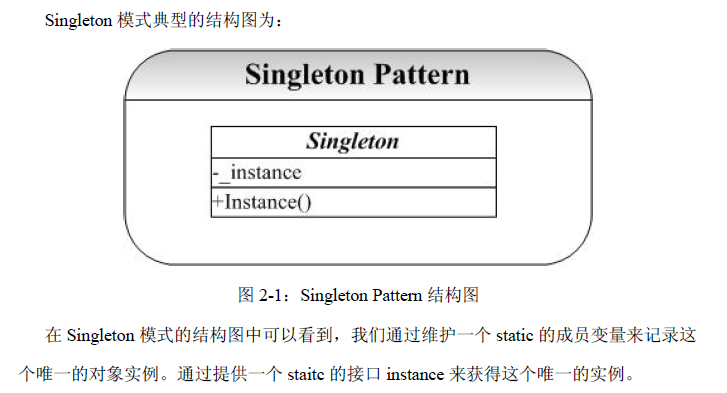Singleton模式解决问题十分常见,我们怎样去创建一个唯一的变量(对象)?在基于对象的设计中我们可以通过创建一个全局变量(对象)来实现,在面向对象和面向过程结合的设计范式(如C++中)中,我们也还是可以通过一个全局变量实现这一点。但是当我们遇到了纯粹的面向对象范式中,这一点可能就只能是通过Singleton模式来实现了

Singleton.h
1 #ifndef _SINGLETON_H_ 2 #define _SINGLETON_H_ 3 4 #include <iostream> 5 6 using namespace std; 7 8 class Singleton 9 { 10 public: 11 static Singleton *Instance(); 12 13 protected: 14 Singleton(); 15 private: 16 static Singleton *_instance; 17 }; 18 19 #endif // !_SINGLETON_H_
Singleton.cpp
1 #include <iostream> 2 #include "Singleton.h" 3 4 using namespace std; 5 6 Singleton *Singleton::_instance=0; 7 8 Singleton::Singleton() 9 { 10 cout << "Singleton..." << endl; 11 } 12 13 Singleton* Singleton::Instance() 14 { 15 if (_instance == 0) 16 { 17 _instance = new Singleton(); 18 } 19 return _instance; 20 }
main.cpp
#include "Singleton.h" #include <iostream> using namespace std; int main(int argc,char* argv[]) { Singleton* sgn = Singleton::Instance(); return 0; }
代码说明
Singleton模式的实现无须补充解释,需要说明的是,Singleton不可以被实例化,因此我们将其构造函数声明为protected或者直接声明为private。